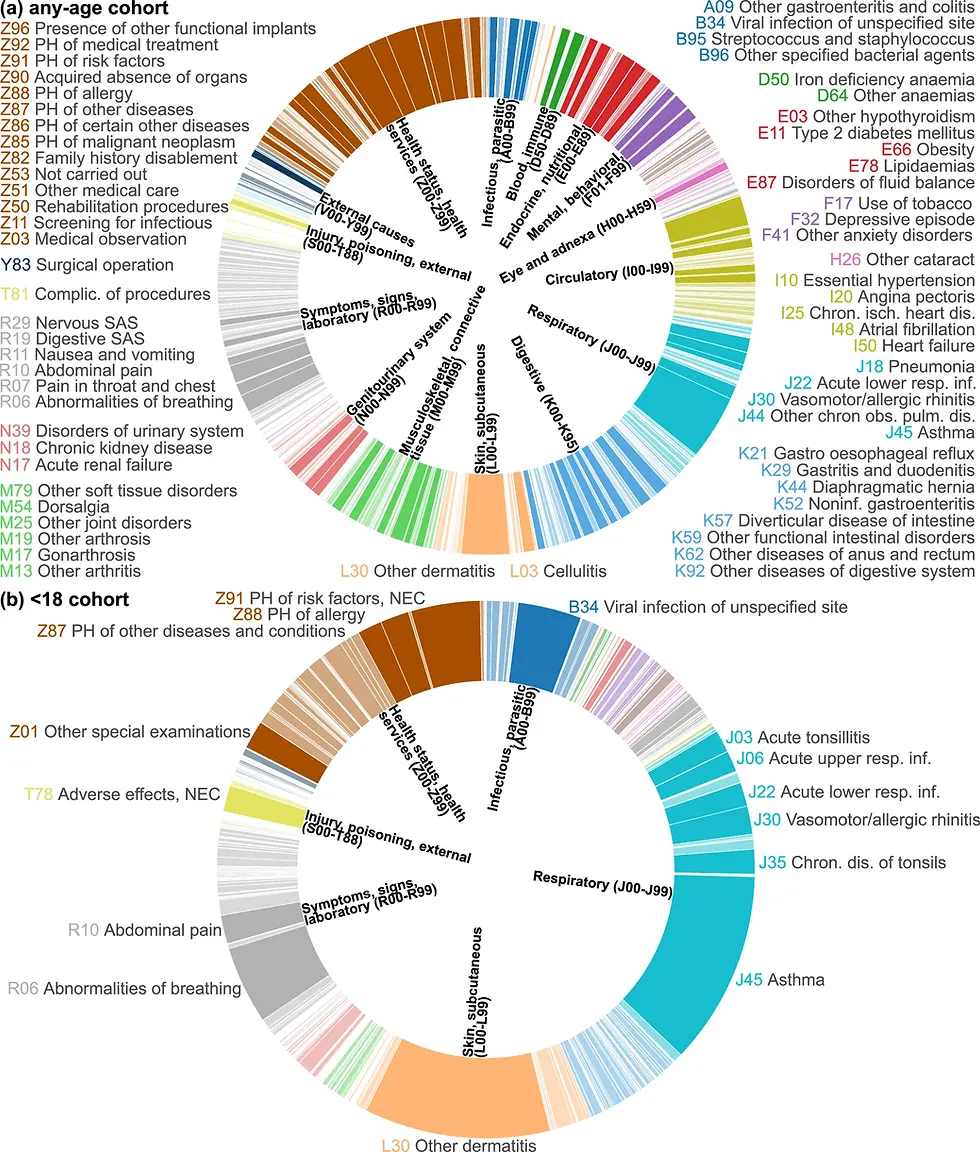Eczema severity may predict whether children outgrow food allergies, new study suggests
- Allan Ryan
- Nov 10, 2025
- 2 min read

The timing, duration, and severity of eczema in early life may significantly influence whether children outgrow food allergies, according to findings presented at the American College of Allergy, Asthma and Immunology (ACAAI) Annual Scientific Meeting in Orlando, Fla.
“Food allergy and eczema often appear together in childhood, but scientists don’t fully understand how one condition affects the other,” said Nicole Koulov, in a press release. She is a second-year medical student at the University of Texas and ACAAI member who collaborated with the FORWARD research team under the supervision of Mahboobeh Mahdavinia, MD, PhD. “We examined surveys from children with a history of IgE-mediated food allergies that they later outgrew. Our findings highlight that eczema may play a role in shaping the development of oral tolerance to food allergens.”
The multicentre FORWARD study analyzed caregiver surveys from 855 children aged 0 to 12 years who had at some point been diagnosed with IgE-mediated food allergies but later achieved tolerance. Parents provided detailed information about their child’s eczema history, including age at onset, when symptoms resolved, and how severe the condition had been. Severity was measured using the extent of skin involvement and type of treatment required, scored on a 0–6 scale.
The results revealed that both eczema severity and timing of onset were closely associated with whether a child later outgrew their food allergy. Children whose eczema began between four and six months of age had significantly lower odds of achieving resolution compared with those who developed eczema earlier, between zero and three months. Greater eczema severity correlated strongly with reduced likelihood of tolerance, and the relationship between eczema duration and allergy resolution followed a non-linear pattern: initially decreasing, modestly increasing at durations of eight to 10 years, and declining again thereafter.
“These findings show that eczema is more than just a coexisting condition—it may directly influence whether children overcome food allergies,” said Amal Assa’ad, MD, a co-author of the study and ACAAI member. “Our data suggest that the timing and management of eczema could be an important factor in helping children develop tolerance.”
The investigators emphasized that eczema itself does not cause food allergies. Rather, they propose that impaired skin barrier integrity and immune dysregulation may increase allergen exposure and immune sensitization during infancy, affecting long-term tolerance outcomes. The findings underscore the potential role of early and effective eczema management in mitigating the persistence of food allergies in pediatric patients.




Comments